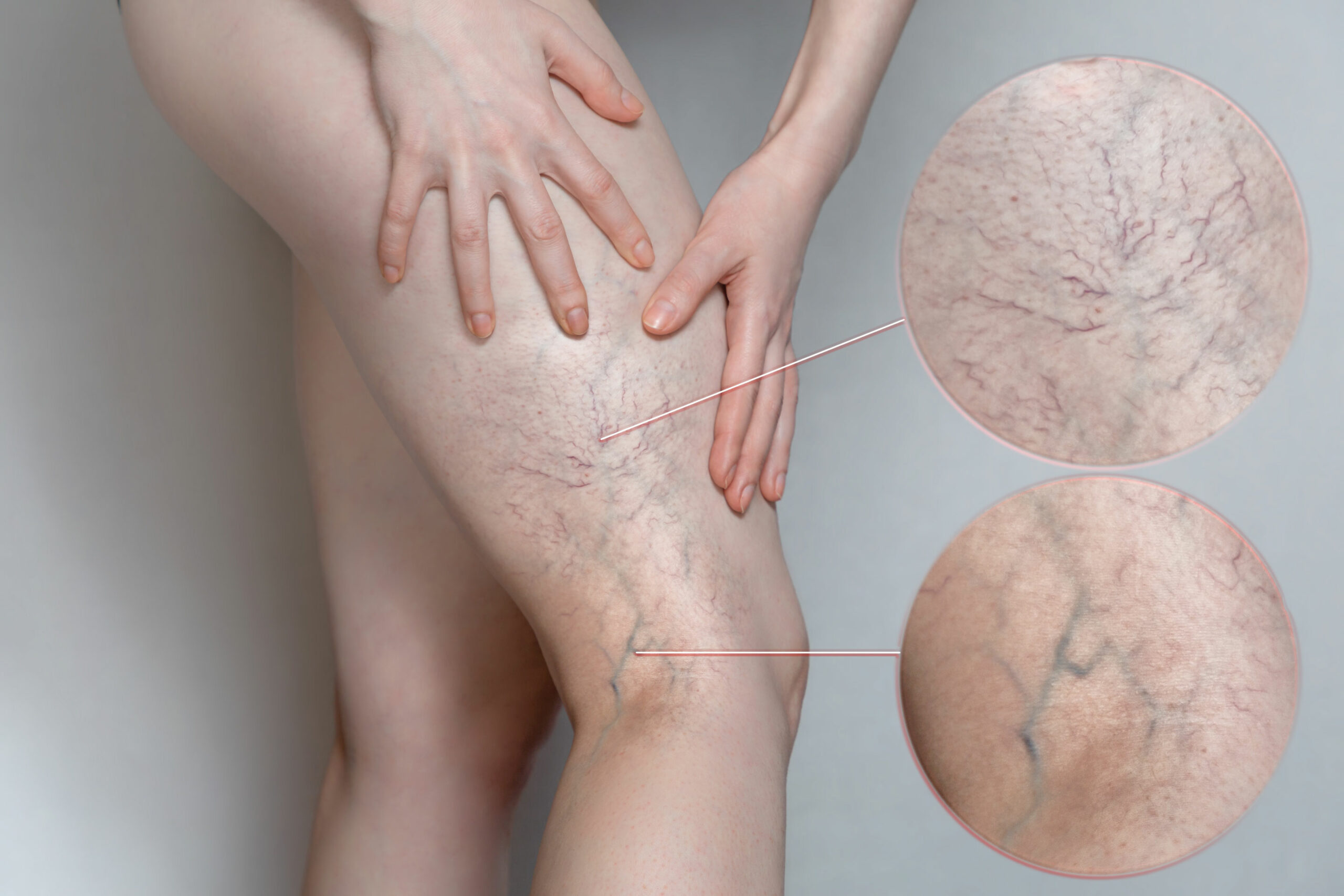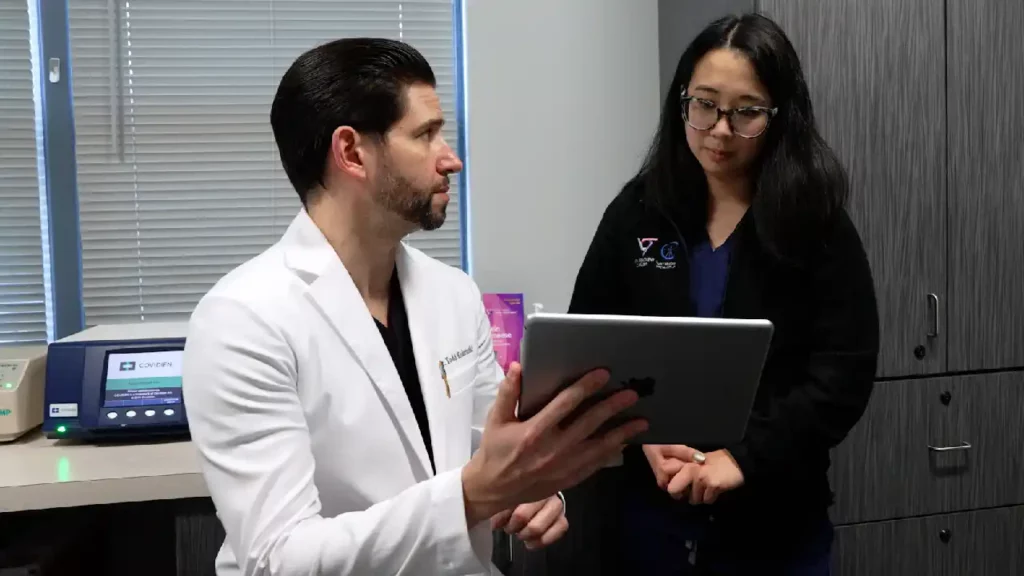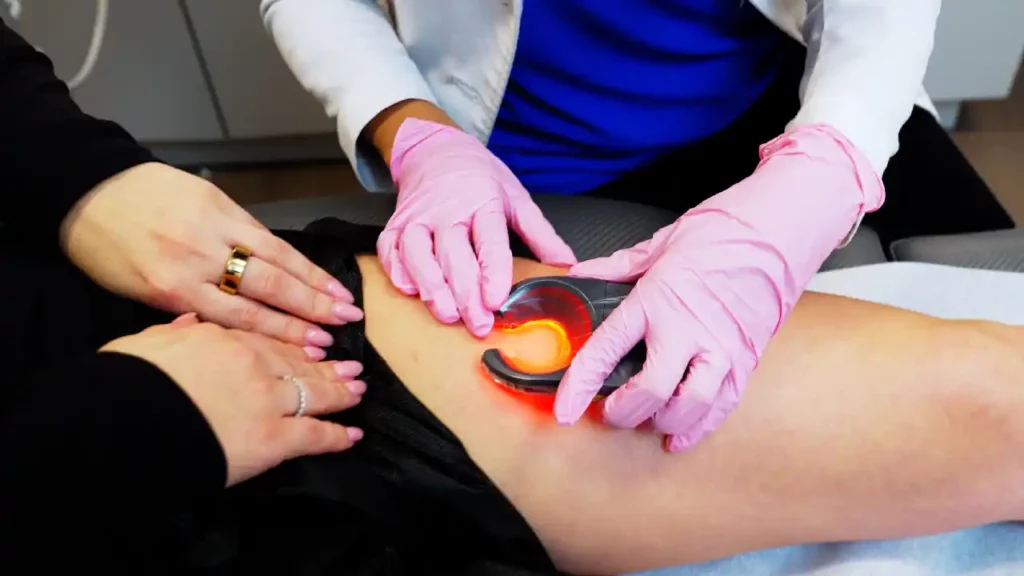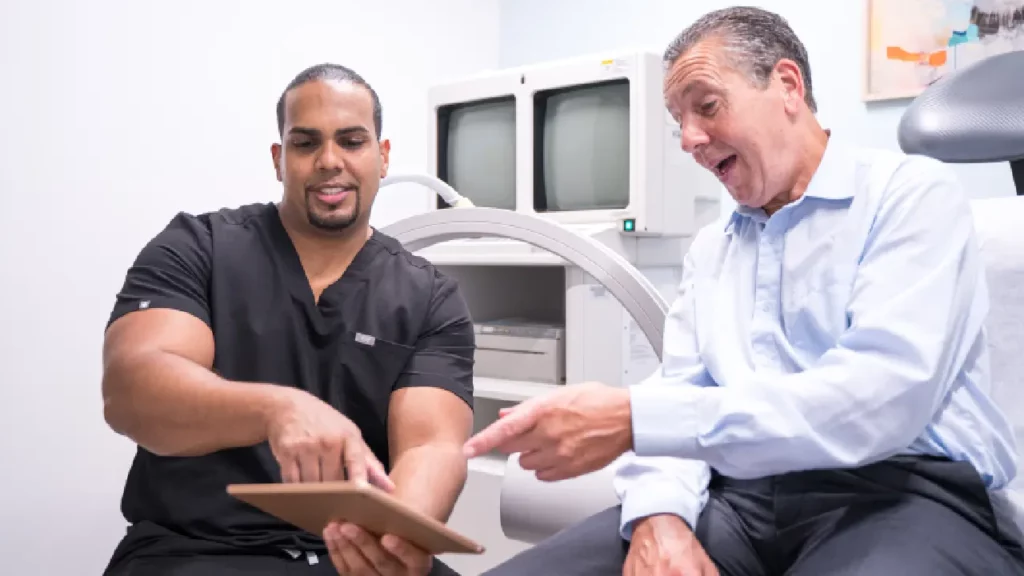WHAT IS VENOUS INSUFFICIENCY
WHAT ARE THE CAUSES AND HOW TO FIX IT

The human body has a vast network of veins that help carry blood from all organs to the heart. The veins in our legs and face have the most work to do as they are the furthest away from the heart. Veins on the legs have to pump blood against gravity, making their job even tougher.
To prevent blood from flowing back into the legs, veins have valves that close if blood tries to flow backwards. But over time, some valves may weaken. When this happens, blood may get collected in the veins, straining against the walls of the veins. This is called Chronic Venous Insufficiency.
Table of Contents
Venous Insufficiency Overview
1. What Causes Venous Insufficiency
Venous Insufficiency is generally a result of either blood clots or varicose veins. Blood clots and varicose veins are caused by a number of controllable and uncontrollable factors. Controllable factors include:
- Smoking
- Obesity
- Poor Diet
- Work or lifestyle involving prolonged standing
- Excessive drinking
- Lack of exercise
Uncontrollable factors include:
1. Gender: Women are more likely to develop CHronic Venous Insufficiency.
2. Genetics: Family history of Chronic Venous Insufficiency increases the likelihood of also getting CVI.
3. Pregnancy: Pregnant women are more likely to get CVI, especially if it is their second or third pregnancy.

Bulging Varicose Veins

Spider Veins
2. Can Venous Insufficiency Affect The Heart?
Venous Insufficiency affects the flow of blood in the legs; but does not have an impact on the health of the heart, or result in existing heart problems to worsen. On the other hand, existing heart problems can cause venous insufficiency, depending on how severe the heart problem is. This is because if the heart does not push blood through the body effectively, it can increase the pressure on the veins of the legs to push the blood, and thus increase the risk of Venous Insufficiency.
3. Is Walking Good For Venous Insufficiency?
Exercise is good for your overall general health, including for recovering from venous insufficiency. Exercising regularly helps get your heart pumping and keep the blood circulating normally. Exercise that strengthens the calf muscles is especially important because the muscles in your calves must work the most against gravity to help the veins push blood back to the heart. This means that walking in particular is very good for venous insufficiency. Doctors will recommend that patients of venous insufficiency walk 30 minutes a day every day if possible, even if it is only to a grocery shop and back.
4. Does Losing Weight Help With Venous Insufficiency?
Obesity is one of the factors that cause Venous Insufficiency. If you already have Venous Insufficiency, losing weight cannot reverse or cure the damage that is already there in your veins, but it can help slow down the progress of the disease and ease some of the symptoms of Venous Insufficiency. If you are overweight, losing extra weight will decrease the pressure on your legs, and make it easier for your leg muscles and veins to pump blood back to the heart. This means that you may feel some relief from symptoms such as leg pain, fatigue, and swelling. But the weight loss must be achieved through healthy means such as proper diet and exercise and be in line with your doctor’s medical advice.
5. What Happens If Venous Insufficiency Is Not Treated?
Chronic Venous Insufficiency is a serious condition where valves in the vein have been damaged and blood cannot flow back to the heart sufficiently. If caught early and if only superficial veins are affected, Chronic Venous Insufficiency can easily be treated with minimally invasive techniques and requiring only local anesthetic. But left untreated, Chronic Venous Insufficiency can lead to serious complications such as blood clots, superficial thrombophlebitis, hemorrhage, and even to ulcers. Once deeper veins in the legs are affected, you may need vascular surgery for treatment. It is extremely important to screen for possible Chronic Venous Insufficiency if the symptoms mentioned above arise.
6. Does Venous Insufficiency Ever Go Away?
Venous Insufficiency can be treated if it is diagnosed in its early stages. This means that you must keep an eye out for any signs and symptoms of CVI. You must be especially more careful if you have a family history of Venous Insufficiency, you are overweight, your job requires long hours of standing or sitting down, and if you are a smoker or drink alcohol excessively.
However, if you don’t catch Venous Insufficiency early enough, it can be difficult, or even impossible, to completely cure the condition. After that stage, you can only manage symptoms and prevent the disease from progressing further. It is important to get treatment for CVI as early as possible because CVI can have a lot of serious complications when left untreated, including blood clots and ulcers.
7. How Do You Fix Venous Insufficiency?
Innovation and massive advances have meant the development of state-of-the-art technology for spider and varicose vein treatment. Vein treatment procedures have become less and less invasive over the last decade. Most procedures now require only local anaesthetic, and some don’t require anaesthetics at all. Highly trained vein specialists can use a variety of diagnosis and treatment methods that would work best for you. Depending on your specific needs, our doctors will then recommend minimally invasive spider and varicose vein treatment methods such as endovenous laser surgery, VenaSeal, radiofrequency ablation, and sclerotherapy using state-of-the-art technology that work best for you. Because the procedures are all minimally invasive, you can be treated on an outpatient basis and can easily fit the treatment procedure in your schedule with little disruption to your daily life.
In rare cases however, surgical treatment may become necessary. This is performed by a vascular surgeon. You must see a doctor at the earliest sign of CVI to prevent this.
Vein Treatment Options
Spider and varicose veins can be treated by a vein doctor or vein specialist at a vein treatment center near you. The most effective treatment will be determined by your vein specialist upon thorough evaluation and diagnostic of your individual case.
Make sure you find a state of the art vein center that offers non-surgical treatments for vein disease. Thanks to modern medicine advances, a worthwhile vein center will offer an array of treatments that won’t disrupt your daily activities, and can have you back on your feet right after.
Insurance Coverage
Most Vein Treatments are covered by all major medical insurances, including Medicare. You can verify your insurance coverage today in three easy steps here. Make sure you have your insurance card on hand!
Related Articles
Find the Best Vein Specialists Near You
Best Vein Treatment Specialists in Alabama
Best Vein Treatment Specialists in Alaska
Best Vein Treatment Specialists in Arkansas
Best Vein Treatment Specialists in Arizona
Best Vein Treatment Specialists in California
Best Vein Treatment Specialists in Colorado
Best Vein Treatment Specialists in Connecticut
Best Vein Treatment Specialists in Delaware
Best Vein Treatment Specialists in Florida
Best Vein Treatment Specialists in Georgia
Best Vein Treatment Specialists in Hawaii
Best Vein Treatment Specialists in Idaho
Best Vein Treatment Specialists in Illinois
Best Vein Treatment Specialists in Indiana
Best Vein Treatment Specialists in Iowa
Best Vein Treatment Specialists in Kansas
Best Vein Treatment Specialists in Kentucky
Best Vein Treatment Specialists in Louisiana
Best Vein Treatment Specialists in Maine
Best Vein Treatment Specialists in Maryland
Best Vein Treatment Specialists in Massachusetts
Best Vein Treatment Specialists in Michigan
Best Vein Treatment Specialists in Minnesota
Best Vein Treatment Specialists in Mississippi
Best Vein Treatment Specialists in Missouri
Best Vein Treatment Specialists in Montana
Best Vein Treatment Specialists in Nebraska
Best Vein Treatment Specialists in New Hampshire
Best Vein Treatment Specialists in New Mexico
Best Vein Treatment Specialists in Nevada
Best Vein Treatment Specialists in New Jersey
Best Vein Treatment Specialists in New York
Best Vein Treatment Specialists in North Carolina
Best Vein Treatment Specialists in North Dakota
Best Vein Treatment Specialists in Ohio
Best Vein Treatment Specialists in Oklahoma
Best Vein Treatment Specialists in Oregon
Best Vein Treatment Specialists in Pennsylvania
Best Vein Treatment Specialists in Rhode Island
Best Vein Treatment Specialists in South Carolina
Best Vein Treatment Specialists in South Dakota
Best Vein Treatment Specialists in Tennessee
Best Vein Treatment Specialists in Utah
Best Vein Treatment Specialists in Vermont
Best Vein Treatment Specialists in Virginia
Best Vein Treatment Specialists in Washington
Best Vein Treatment Specialists in West Virginia
Best Vein Treatment Specialists in Wisconsin
Best Vein Treatment Specialists in Wyoming
Get the Best Vein Treatment
from Top-Rated Vein Specialists









